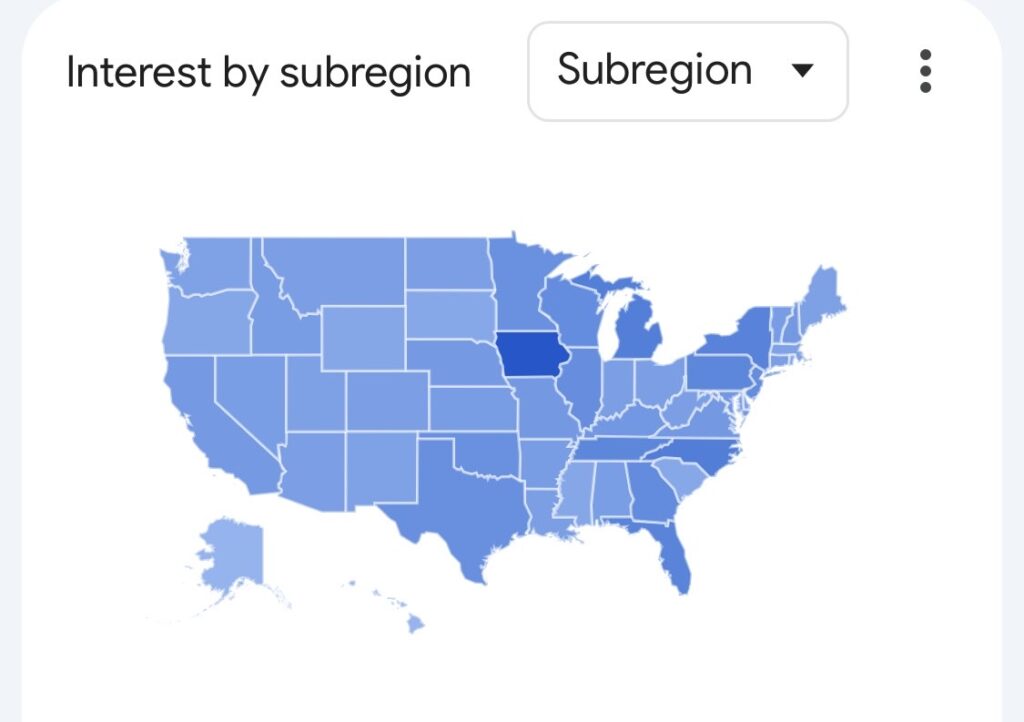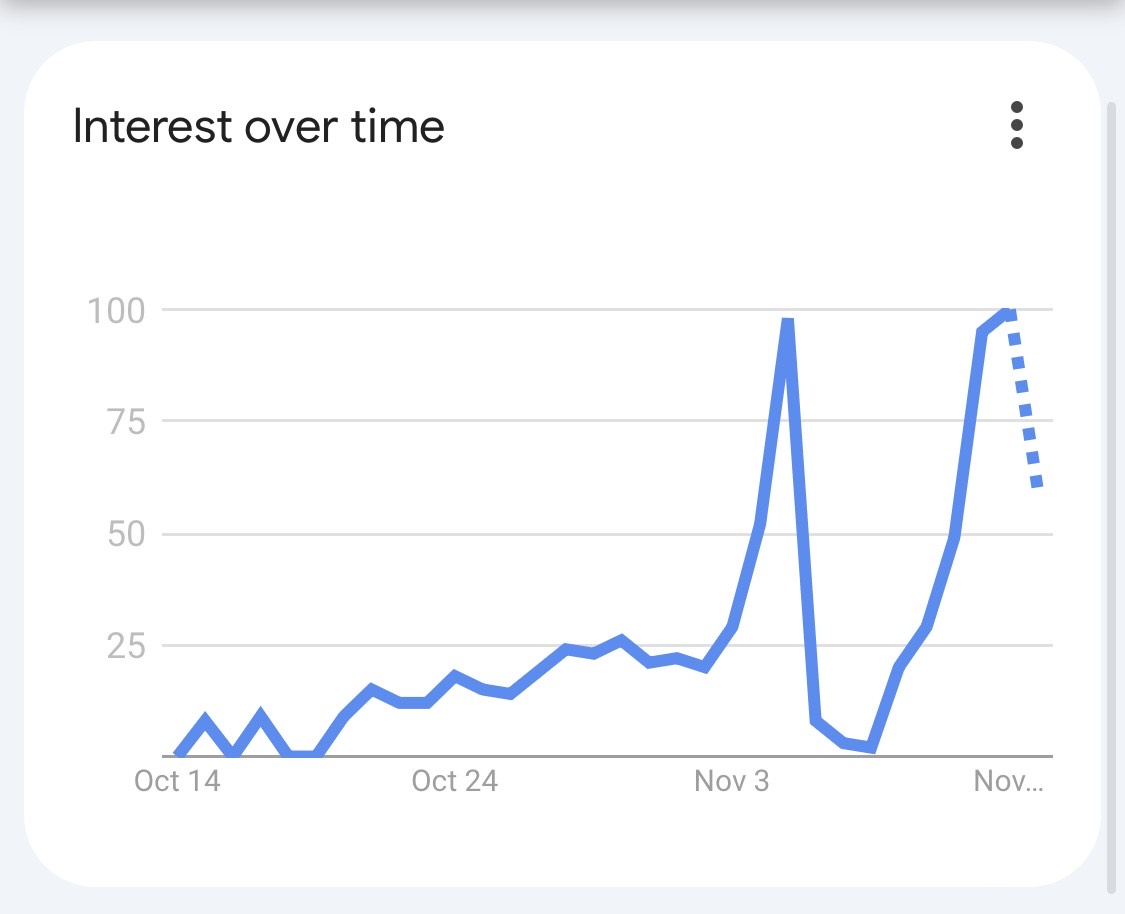Can You Imagine a World Where Society Believes That You Can Change Your Vote Like You Exchange a Clothing Item at a Department Store?
Well, look no further, but we are currently in the matrix as we speak. The recent election has left many voters feeling as though they’ve made a mistake, much like buyers’ remorse after an impulsive purchase. According to Google Trends, the phrase “Can I change my vote?” started trending on election night, a clear sign of the confusion and regret that many voters are grappling with. You can explore this trend directly on Google Trends here.

The states where this query was most prevalent are some of the most pivotal in American politics: North Carolina that carries 16 electoral votes, Pennsylvania with 19 electoral votes, Wisconsin 10 electoral votes, Georgia with 16 electoral votes, Arizona and Michigan which hold 15 electoral votes each, and lastly Florida—a state that, while predominantly Republican, still plays a crucial role in shaping election outcomes. Each of these states is a swing state with the exception of Florida, meaning they can be won by either major political party in an election, making the sentiments expressed by their residents particularly noteworthy. hence the “Red Wave” that happened this past election cycle across the United States.
As social media platforms explode with emotional posts from individuals reflecting on their voting choices, a common thread emerges: despair. People are sharing stories of disownment from family members over political differences, expressing feelings of isolation and regret. Many seem to believe that the electoral process is akin to a retail transaction, where one can simply return or exchange their vote as easily as one would a piece of clothing. This perception is troubling and highlights a significant gap in understanding how our political system works.

It’s disheartening to witness a wave of individuals resorting to Google in search of a way out of their perceived mistakes. As someone who has been highly critical of this behavior, I believe it underscores a broader issue: the necessity for voters to educate themselves on the electoral process. Understanding that votes are final once cast, and that the political landscape is complex and nuanced, is crucial for responsible citizenship.
The aftermath of the election has revealed not just a sense of disappointment in the outcome, but also a lack of preparedness and knowledge regarding the voting process. As people navigate their feelings of remorse, it’s vital to remember that elections are not simply about casting a vote; they are about understanding the implications of that vote and being informed about the candidates and issues at stake.
The emotional turmoil expressed online serves as a reminder of the importance of political literacy. Voters must engage in comprehensive research and discussions with family and friends prior to election day. This kind of proactive education can help mitigate feelings of regret and enable voters to make informed choices that truly reflect their values and beliefs.
In conclusion, while the urge to seek a way to change one’s vote may stem from a genuine desire to correct a perceived mistake, it is essential that we, as a society, recognize the significance of understanding how our democratic process functions. As we navigate through the complexities of politics, let’s ensure that we do so with knowledge and awareness, rather than impulse and regret. The stakes are too high, and our democracy deserves our utmost respect and understanding.
For more in-depth analysis and updates on political events, subscribe to my website, Cocktail Hour with Catrice. Join a community that values informed discussions and the importance of every voice in shaping our future.
